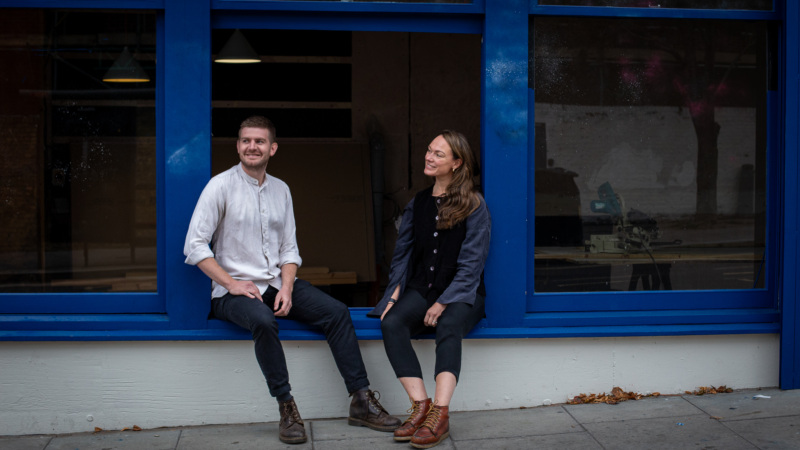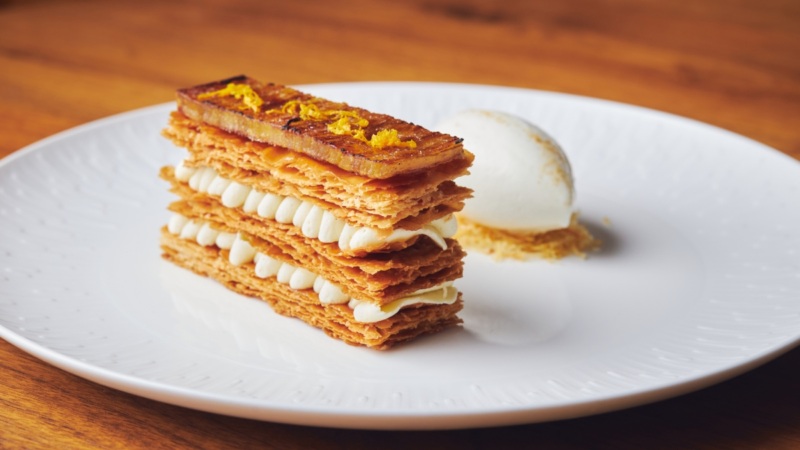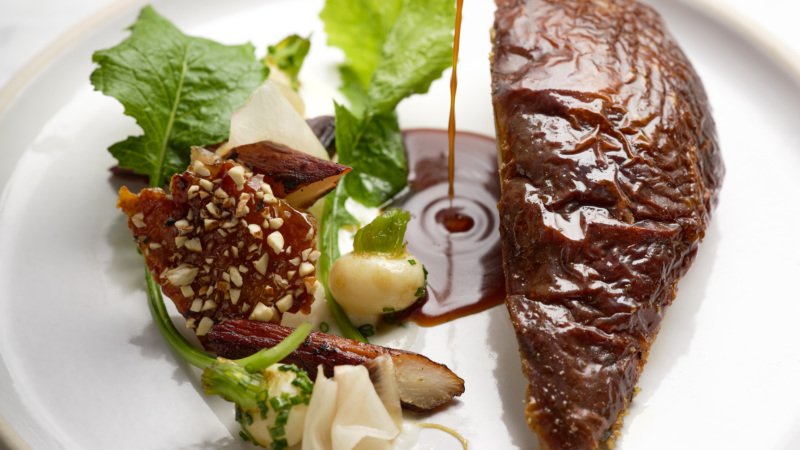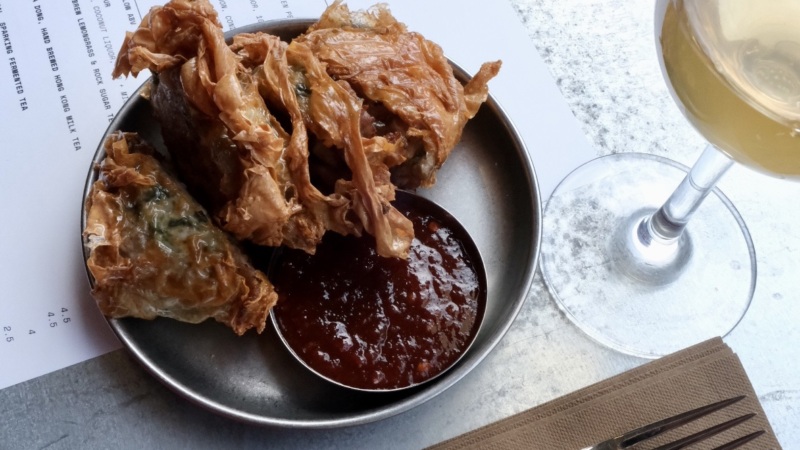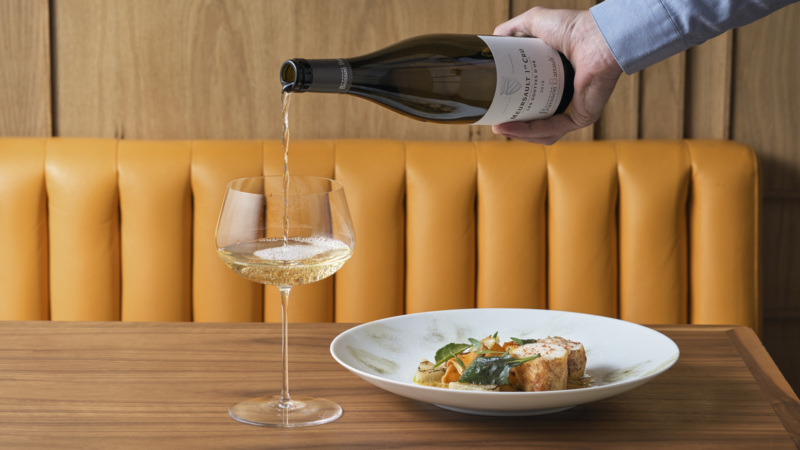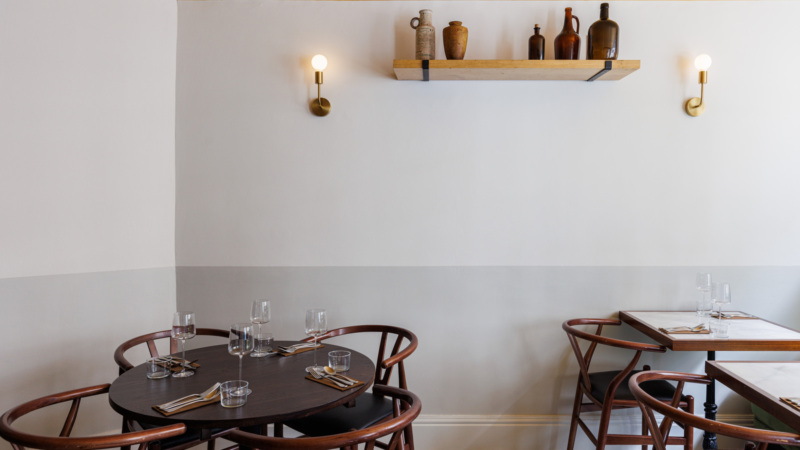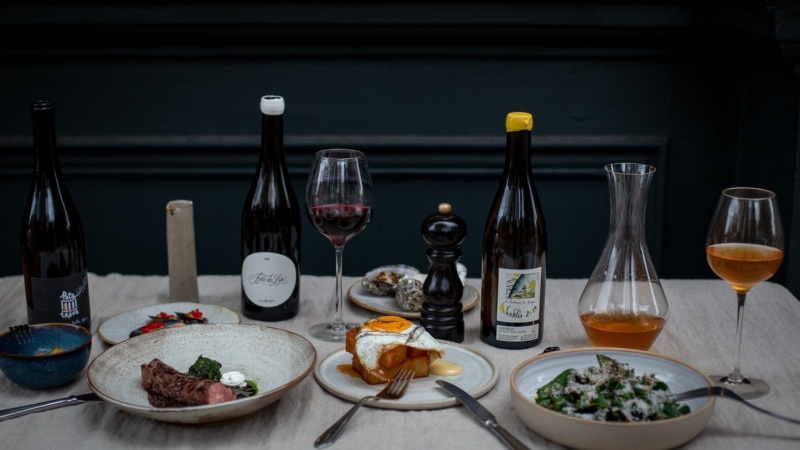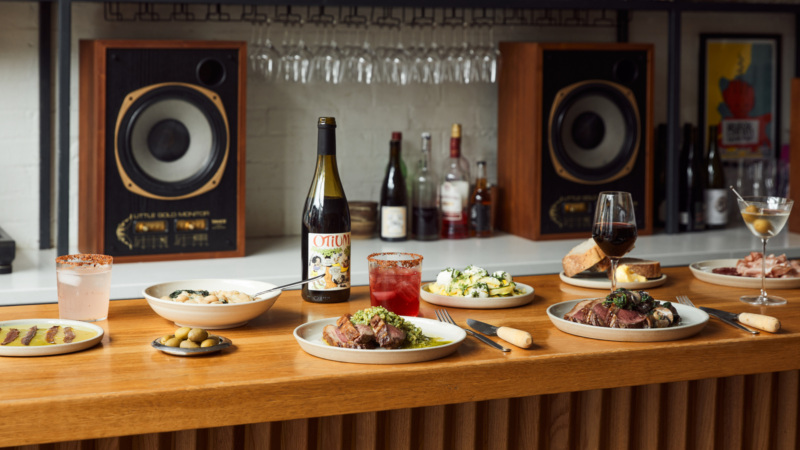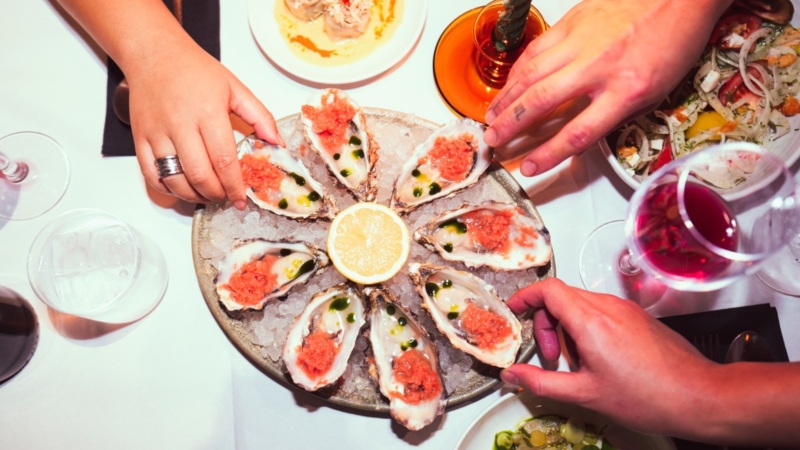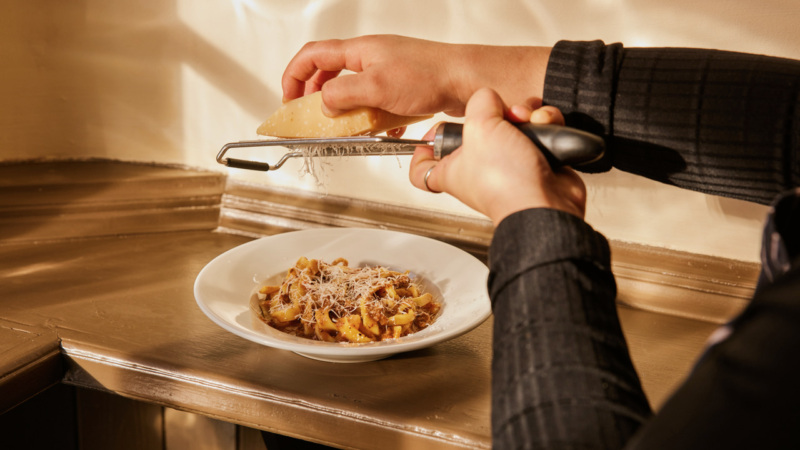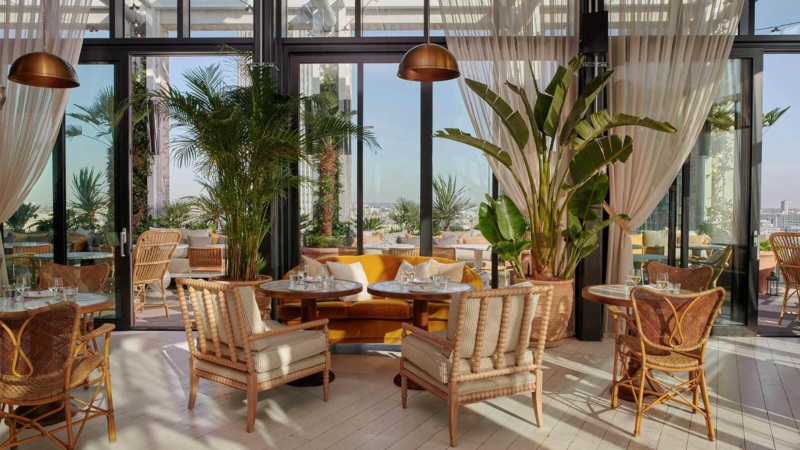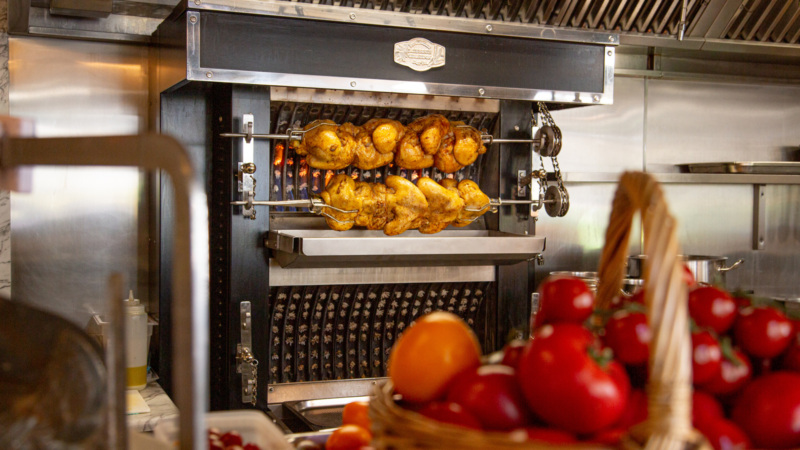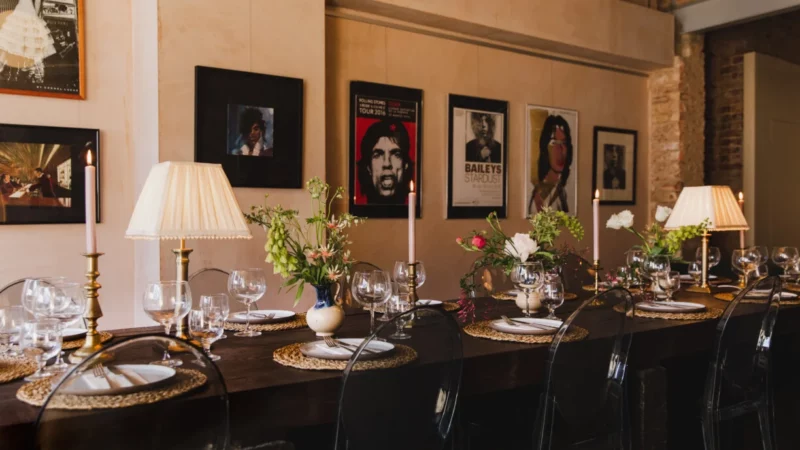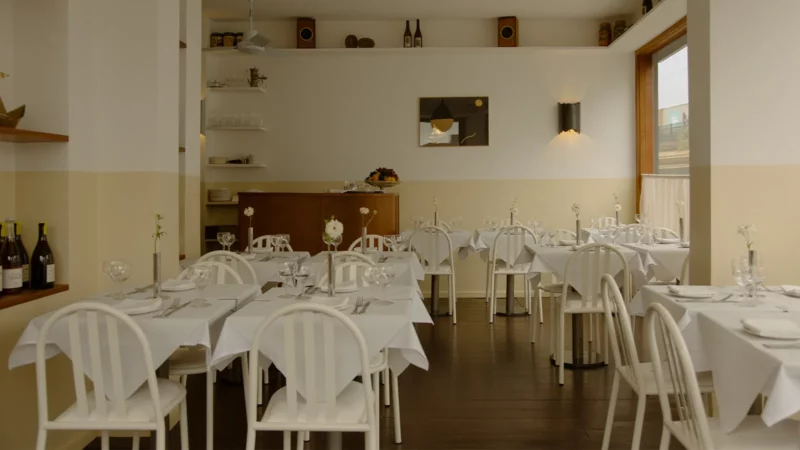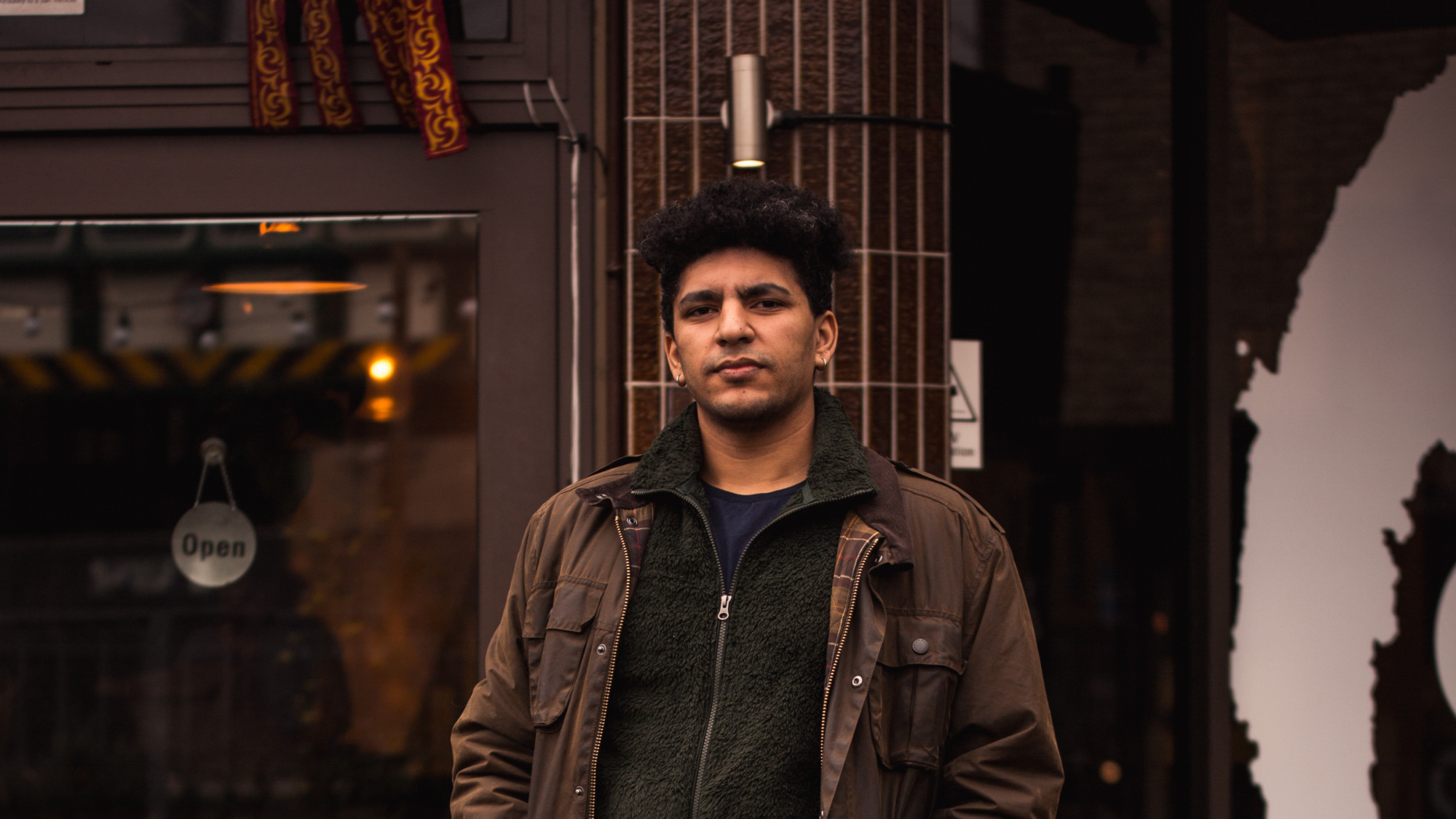
When In Ombra: How Mitshel Ibrahim Created An East End Cult Classic
Published:
For ambitious young chefs these days, the path to success appears straightforward enough. Train at some of London’s best restaurants, gain the chops to run your own kitchen, and bide your time until a backer or venture capitalist with spare change and a penchant for fine cuisine comes knocking. Then, name your new restaurant something snappy and monosyllabic (naming an establishment after its street address is so five years ago), throw a healthy amount of PR at the operation, and wait for the punters to roll in.
This is, at least, how it’s supposed to work.
So it’s a departure, then, that we begin at a barstool in Bethnal Green, circa 2017. Chef Mitshel Ibrahim is sipping a beer at a locally-known but somewhat underachieving Italian restaurant, and the man behind the bar has just offered him a job. It’s the first time someone has offered him a gig as a head chef, and so he accepts.
A longtime East Londoner but originally from Milan, Ibrahim’s CV reads like a greatest hits of London’s critical darlings. Having first arrived to study Environmental Science at Queen Mary University, he quickly got the restaurant bug and ended up working at The Dairy group, as well as Koya and the Young Turks—the collective that would soon help to steer the course of British gastronomy. Later, he joined Isaac McHale at the World’s 50 Best enclave and perennial Michelin-baiter The Clove Club. So what was he doing cooking at an obscure Bethnal Green restaurant known for its cheap and cheerful prices and lavish monthly parties?
“I used to live around the corner, so I actually ended up working here for a year when it first opened,” he laughs. “I had just finished at the Clove Club and I came [to Ombra] for a drink. And I knew the guy at the bar because he also used to work here when the place first opened, and he told me that Andrea, the ex-Head Chef, was about to leave because there was a falling out between him and the owners. He asked, ‘why don’t you come back?’, and I said yes.”
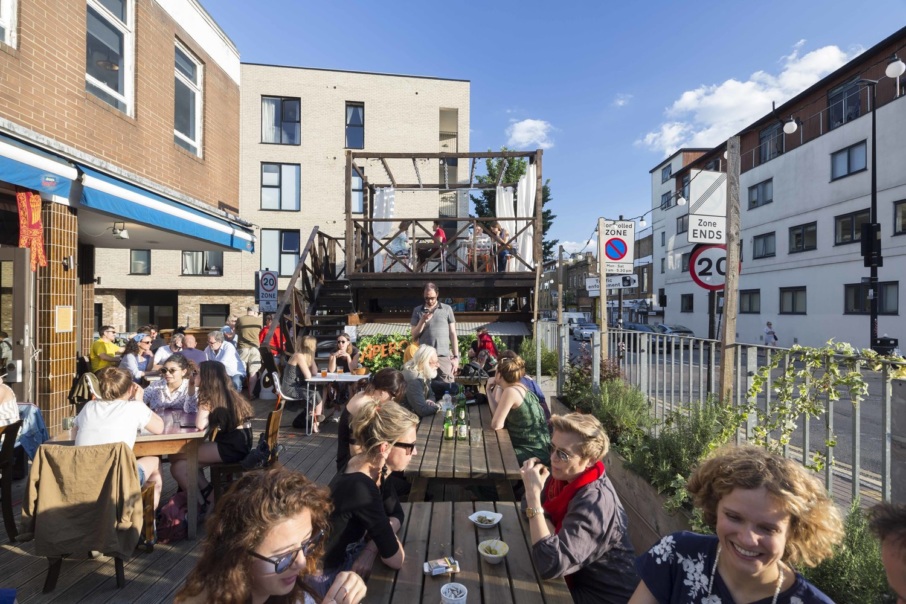
Ombra opened on June 2011 on the site of a former gallery, after several friends chipped in to create a place for them to relax after working in the neighbourhood’s studios. The restaurant opened for around £30,000—a minor miracle—and, with two owners from the Veneto region and a location overlooking the Regent’s Canal, the restaurant naturally took on a Venetian slant. The restaurant takes its name from the local slang word for a small tumbler of wine: “‘let’s go for an ombra’ means you’ll go around the bars and have a little glass before moving to the next bar,” Ibrahim explains, “so that was the original concept of the place”.
While there were a few familiar faces from his first stint, the daunting task of running a kitchen still lay ahead. Moreover, unlike new openings, he didn’t have the benefit of a blank slate to start from. Under Andrea Michelon, the former Head Chef (and current part-owner), the restaurant had established itself as a chaotic-but-loveable place known for its raucous monthly parties. “When the restaurant first opened, Vyner Street used to be full of galleries”, he tells Resy. “So every first Thursday of the month, the galleries would stay open later, and eventually when they closed, Ombra would get absolutely flooded with the art crowds that just wanted to drink.”
“So in a sense, they managed to recreate that kind of messy vibe in a relaxed, informal setting. But then rents went up, and the galleries got replaced with architecture studios and design studios—so that crowd died off.” In particular, Michelon himself had been part of the restaurant’s appeal, according to Ibrahim: “He was such a showman. He would take a big pan—like the biggest pan you’ve ever seen—go to the bar and just take a plate and stick a fork in it, and put as much pasta as he could fit on the plate, and just hand it out for a pound. It was madness. And this young, artistic crowd, they just loved it.”
In addition to those parties, the owners cordoned off entire sections of the restaurant for their own eccentric art installations, and introduced madcap modernist chairs that, as well as being impossible to relax in (Times critic Marina O’Loughlin called it “the least comfortable place I’ve eaten in years” back in 2012), severely limited the number of diners able to fit in a room. Compounded by a menu that prioritised a packed dining room over fiscal prudence, and it was an operation that wasn’t sustainable.
“The food was simple and very tasty, but it wasn’t really produce-led,” he says. “So when I came on board—we weren’t trying to be rich—but we thought [the restaurant] should have been making money, considering the amount of volume it was doing”. He continues: “it was a very tough challenge. I’ve helped to open a few restaurants, but taking over a place is at a different level. Because the place had already been open for five years at the time, there were already a lot of regulars that were used to coming here.”
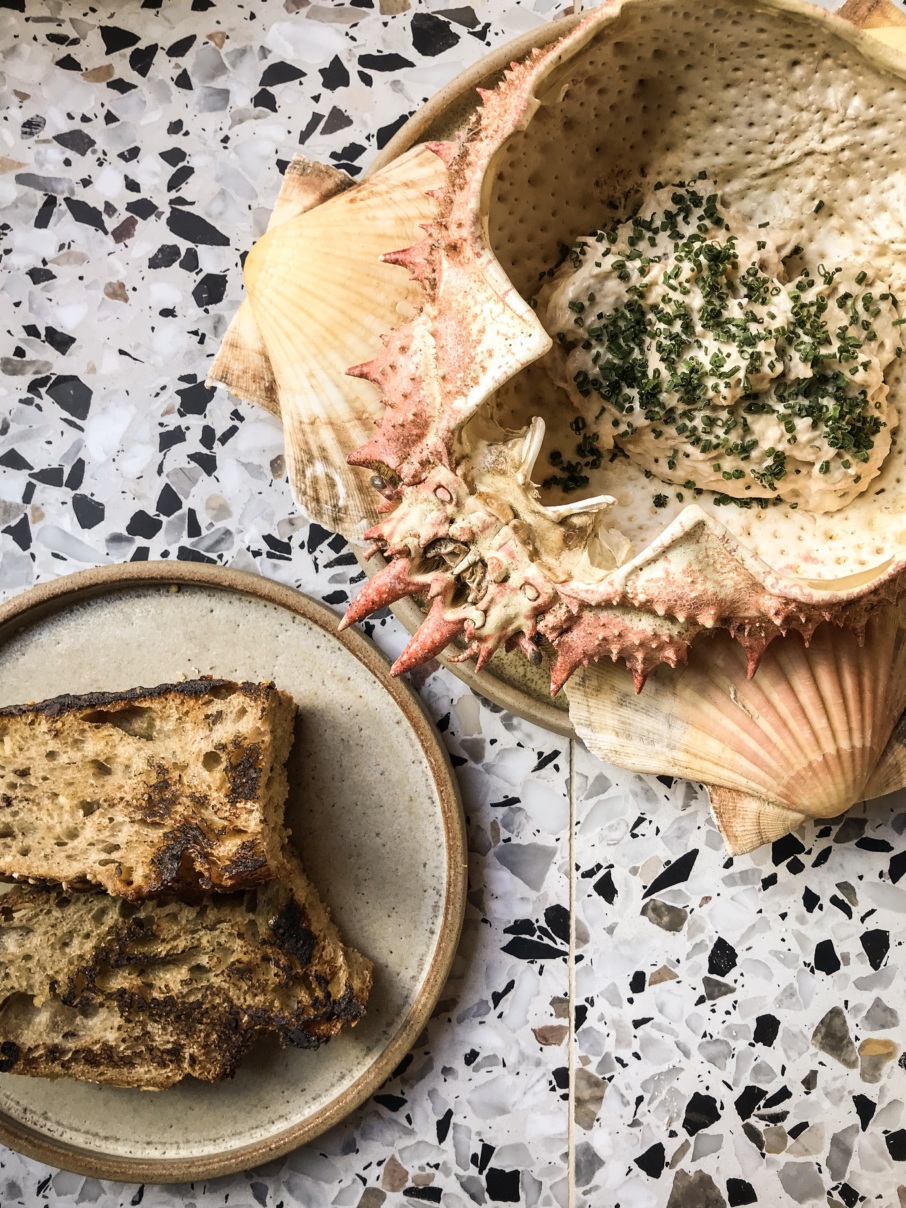
As he began to modernise the restaurant’s philosophy and identity (notably, introducing an entirely new menu and axing sacred cows like tiramisu), prices inevitably crept north, a shock for a five year-old audience used to heaving plates of salami and focaccia for a fiver. “Obviously they stopped coming. We quickly lost a big chunk of clientele,” Ibrahim says.”I think it was financially one of the worst years I’ve ever been open. And the owners were like, ‘Oh my God, what have we done?’”
Ibrahim says the initial shock lost the restaurant 90% of its clientele, but a silver lining emerged in the remaining 10% that would become the restaurant’s new regulars. “To be honest, if you’d asked me the first year, I would probably have said I shouldn’t have done it,” he reflects, “but in the long run, it worked out to lose those customers and gain a few more dynamic, understanding ones.” As well as the food, the neighbourhood had changed too, meaning that as well as similarly-priced spots like Brawn, Sager + Wilde and Campania, a restaurant like Ombra could also thrive.
Hints of that madcap, eccentric spirit persist in the illustrations that line the walls (donated by a friend of the restaurant) and a curious outdoor trellis, erected for the London Architecture Festival, which became an unexpected hit when locals crowded the restaurant’s patio to guzzle Aperol in warm weather. But make no mistake—Ibrahim’s cooking is the main reason that the restaurant is on the map. Primarily sustained by its regular clientele, his food has also drawn wide praise that has made it a cult favourite among the city’s young food cognoscenti and fellow chefs.
At Ombra, dishes as simple as a plate of fried artichokes or a perfect blueberry and tarragon tart hint at a technically accomplished hand. However, the kitchen’s produce-driven style never loses sight of what makes a dish delicious, or how to coax the essence of a particular ingredient. And as with any great restaurant, sourcing is an obsession, and Ibrahim is no exception, reeling off a regular list of suppliers like seafood specialists Pesky Fish and Henderson Seafood, farmer and butcher Farmer Tom (“just a very nice guy”) and vegetable purveyors Natoora (“pricey, but nobody else can get that quality”). It’s noteworthy that, while such practices may be par for the course at a buzzing Soho hotspot, it’s rarer for a local or independent establishment to go to such pains to get the best.
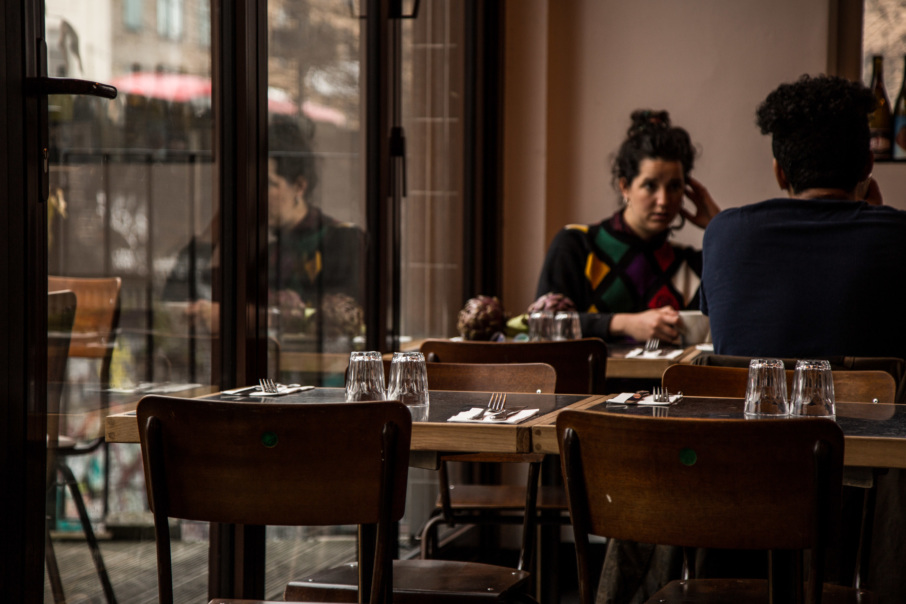
So as a Milanese cooking the cuisine of Venice in London, just how faithful to the original is the food at Ombra? “We always try to keep baccala mantecato, which is a mousse made of air-dried cod,” he says, “and we also have marinated sardines in pine nuts and raisins, which is a Venetian staple. Bigoli is Venetian too.” How about desserts? “Tiramisu. Not many people know it, but it’s Venetian. So we try to have three, four dishes that, if someone from Venice comes here, they can recognise it. Certain things have to stay on because it’s a connection for them, sort of a safe place.”
As sticking points in the food world go, they don’t come much bigger than the question of authenticity. Famously, few national palates are as particular as those of his Italian compatriots. So what’s his take on the dreaded A-bomb? “I enjoy authentic dishes where they’re from, because anywhere else, they would just be adaptations of what you’ve got in your hands. It wouldn’t be as ‘authentic’, which is not an issue, but it would just be something else”, he explains.
For some diners, it seems, it’s something that even extends to a chef’s background—something Ibrahim tries to take in his stride: “you know,” he begins, “I don’t really obviously look Italian. And in fact, some people come here and I can hear them at the bar, and it’ll be like, [whispers] ‘the chef here used to be Italian.’ And it’s so funny.”
This kind of experience, of course, is far from uncommon for people of colour—in any industry. But everyday racism aside, it’s indicative of Ibrahim’s talent and hustle that Ombra has built such a loyal following—and, regardless of what he cooks and where he cooks it, the food is consistently excellent. In particular, Ibrahim has formed a habit of recruiting former colleagues and friends for one-off shindigs. Talent recognises talent.
Entitled When In Ombra, the dinner series recreates the spirit of those old pasta and wine parties. The idea was conceived during a particularly tough stretch when trade was down, and a dearth of regulars stifled the team’s morale. Ibrahim responded by inviting a friend from Venice to cook a traditional cabbage and smoked mutton stew for a one-off dinner, and since then, the monthly series has hosted everyone from Lyles and Dairy alumni, to rising stars Anais van Manen and Nick Bramham from Quality Wines. “The market is so busy. So many cool places are opening, so it’s hard to stay relevant,” he says. “When In Ombra was a great way to address that. Financially it hasn’t made much money and is a lot of work, but it’s a way to introduce guests and their friends to Ombra. It’s a relaxed, fun evening”.
On the day we speak, the news of Londrino’s closure—chef Leo Carreira’s acclaimed London Bridge restaurant—is making the rounds. For Ibrahim, it’s a sobering reminder that, even with immense talent and backing, nothing is guaranteed. “It’s so sad—I love Leandro’s cooking. For someone who’s done everything right and has been very honest and true to himself, you want to see someone like that succeed. It makes you question everything,” he says.
But with a considerable amount of talent, creativity, and willingness to hustle—not to mention resourcefulness—the outlook at Ombra is far more positive than most. “After the shock of losing our clientele in the first year, the most rewarding thing has been building our own regulars and recognising faces,” he says. “I’ve never been in that position, I’ve never been a Head Chef before, let alone having people come regularly for your food, knowing that every time it’s going to be different. So for people to have trust in what we do, and to keep coming back, it’s very cool.”
